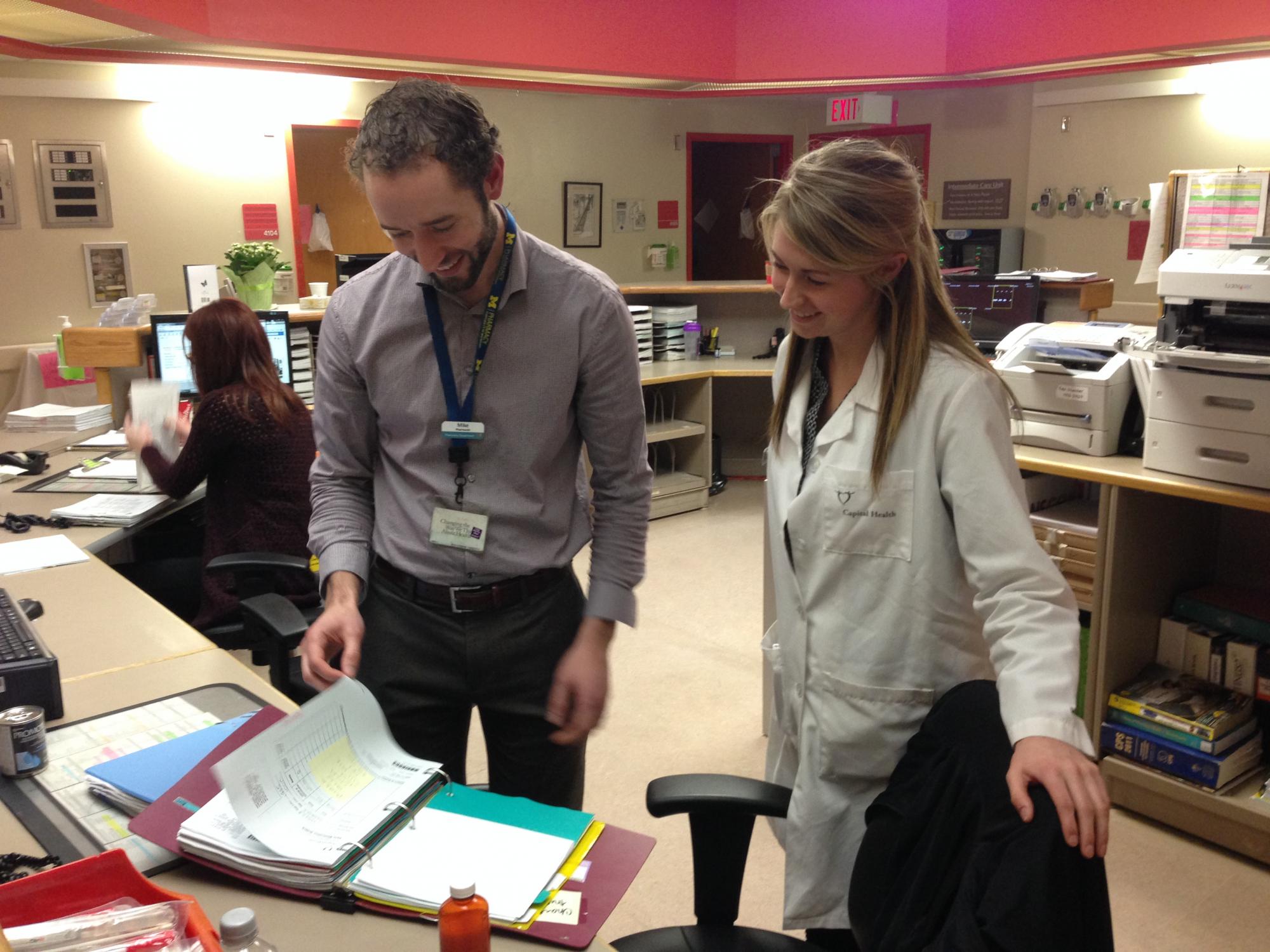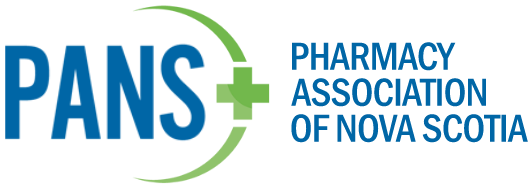Pharmacist Michael MacNeil and Pharmacy Assistant Carly LeBlanc both work at the QEII Health Sciences Centre. Mike is a clinical pharmacist in both general and vascular surgery at the Halifax Infirmary and the Victoria General Hospitals in Halifax. Carly is a pharmacy technician who works in the surgery pre-admission clinic and in the emergency department. If you have ever been admitted for surgery in Halifax, there is a good chance you have met one or both of them.
As a patient, you would meet Carly first. Her job is to collect the "Best Possible Medication History" from you. It is something that pharmacy technicians/assistants have only been doing in hospitals for the past few years.
As part of her education, Carly completed a placement in a hospital and she knew that was what she wanted to do.
"I wanted to do something a little bit different," she says. "And wanted to work directly with patients."

Her current position gives her the opportunity to do both.
The Best Possible Medication History is the most accurate list of all possible medications a patient is taking, and includes the drug name, dosage, frequency, and method of delivery (e.g. pill, capsule, injection, etc.). Sometimes she has to do some detective work to ensure that she has a complete picture of the medications the patient is taking. Carly may have to contact a patient's community pharmacist, doctors, and family when the patient is unable to provide the needed information.
There are a couple of checks that Carly performs with the patient. She calls to confirm the patient’s medications the day before and the day of the surgery. As a pharmacy assistant, she offers a unique insight and knows the right questions to ask a patient to get a full medication profile.
“When the medication history is taken by a pharmacy technician or assistant, they are much more complete and accurate and have fewer issues” says Mike."It is the right person doing the right thing at the right time."
Once Carly has completed her work, the information goes to Mike, who then confirms the medication history. Sometimes the pharmacy technician/assistant has flagged an item for the pharmacist to investigate further. As a pharmacist, Mike is able to offer a broader knowledge base and interpretation of the patient’s medications. He is always looking to ensure that a patient is on the right medication and not taking any medications that could lead to complications during or after surgery (i.e. blood thinning medications that could increase the risk of bleeding).
Another important part of Mike’s role on the surgery team is to ensure that a patient is on the correct medications with the correct dosage, both during their hospital stay and when they are discharged home. He also communicates changes to the patient and their family doctor and community pharmacists that will be taking over the patient's care once transitioning to home. Recommendations are made in terms of adding, stopping, or changing dosages of medications. Due to the collaborative nature of the hospital, surgeons, in recent years, rely on the pharmacist to help manage patients' chronic diseases during their hospital stay (i.e. hypertension, diabetes).
On the hospital unit, Mike also works with the patient and doctors to ensure the patient will be able to afford and/or have coverage for new medications they need once discharged. This may mean making changes to the medication prescribed to something that has the same therapeutic effect, but is a less expensive option or that is covered under the patient’s drug plan. In some cases, Mike will help to connect a patient with a social worker who can help the patient better access their medications from programs for those with financial challenges.
Carly and Mike have the opportunity to work with patients of all ages and varying medical illnesses. Every day is different and they never quite know what the day will bring.
“It’s very rewarding to work in such a collaborative environment to ensure patients get the best care,” says Mike.
Although many patients may be surprised to discover there are pharmacists and pharmacy technicians /assistants working on their hospital care team, the pharmacy team plays a crucial role in ensuring their patients have the best health results possible during their hospital stay and afterwards.
